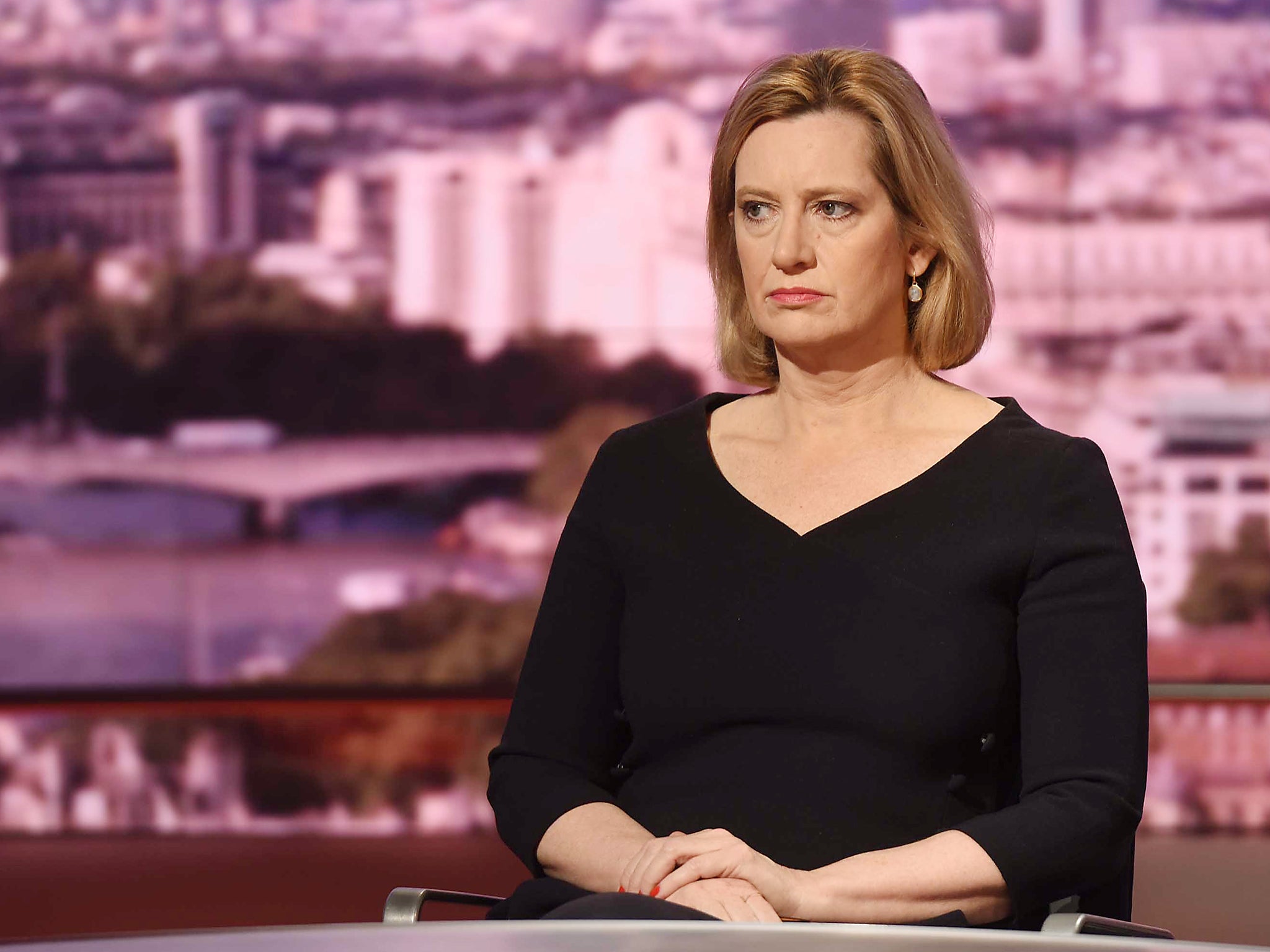Amber Rudd to ‘urge tech companies in Silicon Valley’ to do more to crack down on terrorism
In the wake of a string of attacks across the UK, Theresa May in June called for the introduction of stricter regulation that would 'deprive the extremists of their safe spaces online'

Amber Rudd will this week urge some of the world’s biggest social media platforms to step up efforts to crack down on content that encourages violence and terrorism, Reuters has reported, citing a person familiar with the matter.
The Home Secretary is due to travel to Silicon Valley this week where she will reportedly meet with representatives from YouTube and Google parent company Alphabet.
Those social media platforms, as well as peers Twitter and Facebook, have been scrutinised closely in recent years for the role that they might be playing in facilitating terrorist activity and violence.
In the wake of a string of attacks across the UK, Theresa May in June called for the introduction of stricter regulation that would “deprive the extremists of their safe spaces online”. She accused the technology firms of not doing enough.
“We cannot allow this ideology the safe space it needs to breed – yet that is precisely what the internet, and the big companies that provide internet-based services provide,” the Prime Minister said in aftermath of the London Bridge terror attack.
Many of the biggest players in the field responded at the time, vehemently defending their efforts.
A spokesperson for Facebook said that the platform already uses “a combination of technology and human review” and works “aggressively to remove terrorist content”.
A spokesperson for Google said that the company is “working with industry colleagues on an international forum to accelerate and strengthen our existing work in this area”. Twitter said that it continues “to expand the use of technology as part of a systematic approach to removing this type of content”.
Last year, the Investigatory Powers Act 2016 – dubbed the “Snooper’s Charter” – came into effect across the UK, expanding the powers of spying agencies and the Government over the internet.
The Act has been championed by Ms May as it requires internet service providers to maintain a list of visited websites for all internet users for a year. It also gives intelligence agencies more powers to intercept online communications.
Police can access the stored browsing history without any warrant or court order.
Subscribe to Independent Premium to bookmark this article
Want to bookmark your favourite articles and stories to read or reference later? Start your Independent Premium subscription today.

Join our commenting forum
Join thought-provoking conversations, follow other Independent readers and see their replies